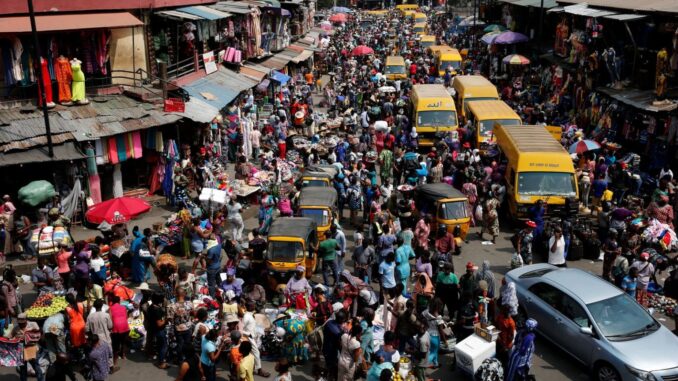
The removal of petroleum subsidy must not worsen poverty in Nigeria, Isa Sanusi, acting director for Amnesty International Nigeria, has said.
Mr Sanusi disclosed this in a statement sent to PREMIUM TIMES Thursday afternoon.
He said the Nigerian government must urgently put in place measures to protect the rights of people most affected by the removal of the fuel subsidies.
Fuel queues returned to Nigerian cities Monday as many motorists scrambled to get petroleum products hours after President Bola Tinubu announced that the government would end the fuel subsidy regime.
Mr Tinubu, on Monday, in his inaugural address at Eagle Square, Abuja, declared that there would no longer be a petroleum subsidy regime as it was not sustainable.
“We commend the decision of the outgoing administration in phasing out the petrol subsidy regime, which has increasingly favoured the rich more than the poor. Subsidy can no longer justify its ever-increasing costs in the wake of drying resources.
“We shall, instead, re-channel the funds into better investment in public infrastructure, education, health care and jobs that will materially improve the lives of millions,” Mr Tinubu said.
In its intervention, Amnesty International said Mr Tinubu’s decision to remove the fuel subsidy had left millions of Nigerians terrified about the knock-on effects that it will have on their daily lives.
“Many are concerned that they will be unable to meet the costs of education, food and healthcare. The government is yet to suggest any ways to mitigate the impact of this decision for people on low incomes,” the statement said.
“While all countries are required to eventually remove all fossil fuel subsidies to meet their human rights obligations in the context of the climate crisis, they should not do so in a way that undermines the ability of people on low incomes to secure their right to an adequate standard of living.”
The civil group said it was vital that subsidy removal is accompanied by social cushioning and protection measures.
“Nigerians should not have to pay the price of decades of political and economic mismanagement of the subsidy scheme,” he said.
He added that the authorities must finally respond to longstanding demands by civil society and parliamentarians to investigate the fuel market chain and hold accountable all those involved in smuggling, hoarding and ‘subsidy scams’ regardless of rank or status.
“The Nigerian authorities must urgently put in place measures to protect the rights of people most affected by the removal of the fuel subsidies and prioritise addressing widespread hunger, higher unemployment and the rapidly falling standard of living,” he said.
Fuel subsidy
The Nigerian government has, for decades, subsidised fuel and fixed retail prices of petroleum products. The payment has, however, threatened the nation’s fiscal position and impacted the government’s ability to fund developmental projects nationwide.
In November 2021, the federal government announced its plan to remove the fuel subsidy and replace it with a monthly N5,000 transport grant for poor Nigerians.
But the government later suspended the plan after the Nigeria Labour Congress (NLC) and Trade Union Congress (TUC) threatened to embark on mass protests.
The Minister of Finance, Zainab Ahmed, in January last year, said the government had realised the timing of its planned removal of petrol subsidy was “problematic” and would worsen the suffering of Nigerians.
In the first quarter of 2023, Mrs Ahmed said that it would be more appropriate for the government to begin the implementation of its fuel subsidy policy in the second quarter of the year. She noted that the country needs to exit the fuel subsidy regime because it significantly contributes to revenue loss.
As concerns were raised over the sustainability of the subsidy regime, the Nigerian National Petroleum Company Limited (NNPCL) also announced that the country was spending over N400 billion monthly on petroleum subsidies.
The government subsequently said that it would phase out the subsidy regime by the end of the first half of the year.
But in April, the National Economic Council (NEC) suspended the planned removal of subsidy on petroleum products by the end of President Muhammadu Buhari’s administration.
On Monday, Mr Tinubu announced that the subsidy regime has ended because it’s not sustainable.
The announcement was trailed by a sharp increase in transport fares across Nigeria.
END

Be the first to comment